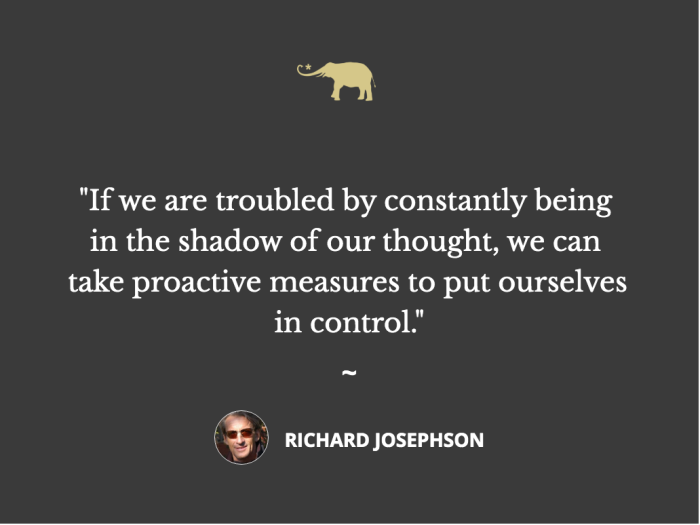View this post on Instagram
Do you ever feel annoyed by the mind’s proclivity to anticipate ideas, or that you are getting ahead of yourself? I do.
Do you constantly jump to conclusions, unwanted ones, and feel a flood of overwhelming ideas? Are you unable to think straight, pulled this way and that?
Do you have predictive typing “on” or “off” on your cell phone? Does your brain ever feel like a computer? Does your mind run ahead of itself and wear you out trying to keep up? Do you feel overwhelmed with choice and wish you could turn off your brain?
We are not machines but often imitate them, like it or not. While second-guessing ourselves is “normal,” sometimes, when it is excessive, it obscures our ability to think and feel, and we shut down. We do something else, or nothing at all.
Software developers have insightfully provided enable/disable buttons to put us in control of their empowering creations, particularly predictive typing, for times when we find their ostensibly “helpful” creations annoying—and unhelpful.
Much of anxiety seems to be the result of anticipation run amuck. We want to slow our thinking down, but have no means to do so, or seemingly have no means. Wouldn’t it be nice if we could turn off some of the features of our brain?
Most of us experience only intermittent interference from our ever calculating mind, but for some of us, constant anxiety is an unwanted companion 24/7. We are like a little kid with an annoying Mom offering us unwanted suggestions until we just want to break down and cry.
It is often said, “You cannot run away from yourself,” quite reasonably, because sometimes the “self” is ahead of us from the start. Following in the footsteps of our calculating mind, even when possible, destroys all our creative instincts and with it the sense of creativity.
Plodding along, enslaved by our thoughts, is different from being in control and guiding them along. Some resign themselves to a cookie-cutter world, throw in the towel, and accept mediocracy, rather than challenge the authority of the person inside trying to be ever so helpful.
A great Chinese Buddhist philosopher, Seng Chao, famously said:
“Beware of the person trying to help you.”
Useful advice indeed! And we should also beware of the person in our brain that is a little too helpful. But the question for some of us so afflicted is how. A testimony to the extent of anxiety issues, of various hues, is the plethora of drugs on the market and even herbs offering relief. But while solving one problem, these offerings create another, an inability, to think at all!
We want to eliminate the obstacle to clear thinking without destroying thinking in the process. How can we do this? One thing that might be helpful is to examine whether our anxiety follows certain patterns of thought or is a universal anxiety.
Are we ahead of ourselves always or sometimes? Maybe we shouldn’t be doing whatever it is that generates anxiety. Are we unwittingly bucking our nature? If that is the case, maybe acknowledging that and refraining from whatever it is the simplest solution.
No one needs to feel that they must resign themselves to the ills of predictive thinking. If we are troubled by constantly being in the shadow of our thought, we can take proactive measures to put ourselves in control. This doesn’t mean stop whatever we are doing and call a friend, go shopping, or hang out in a coffee shop; attractive options though they may be, they will never get us anywhere.
If we find a middle way between confronting our issues head-on, or escaping them altogether, we may find a way around our anxiety and eventually resolve it.
There is a middle way between fight-or-flight. If we find ourselves getting in the way of ourselves, we could challenge ourselves to do something we always felt impossible or intimidating, perhaps something we never felt up-to-snuff to accomplish.
If we succeed, we build our self-esteem, and if we fail, remember that as Bob Dylan sings, “There isn’t no success like failure.” So taking up a challenge is a middle course between fight-or-flight that makes a lot of sense.
~


 Share on bsky
Share on bsky





Read 0 comments and reply